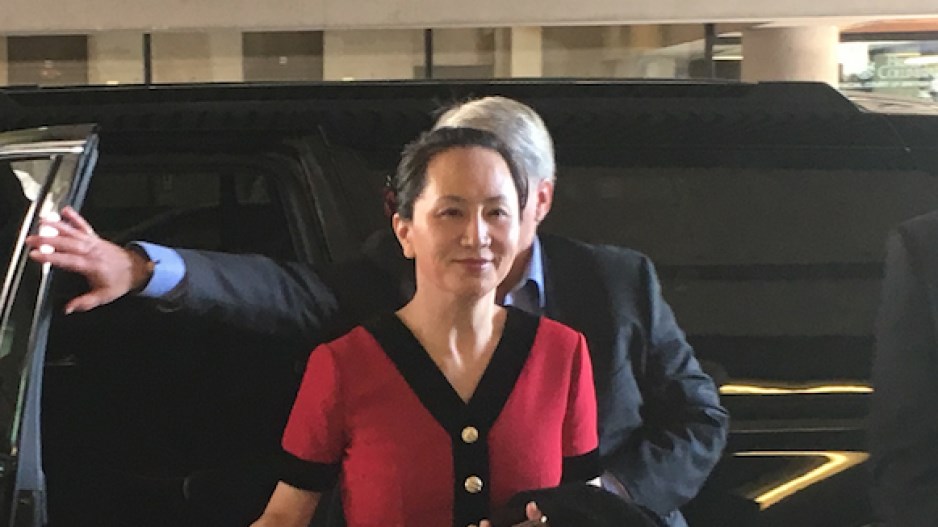The Meng Wanzhou extradition hearings return in earnest this morning, with the defence commencing a key portion of its argument: Alleged abuse of power by Canadian authorities making the arrest.
The argument by the lawyers of the Huawei Technologies Co. Ltd. CFO centre around the way Meng was arrested on Dec. 1, 2018. During the witness testimony portion of the hearings late last year, officials from both the RCMP and the Canada Border Services Agency gave testimony that indicates there was indeed procedures outside the norm - such as subpar note-taking processes for evidence.
Officials, however, deny there was an intention to prevent transparency.
On Wednesday, Meng’s lawyers began with their efforts on the affidavit given by the Canadian Ministry of Justice to the RCMP - which was then presented to the courts in order to secure the provisional arrest warrant for Meng’s arrest in 2018.
Defence lawyer Tony Paisana contend that the document was misleading with questionable facts that ran counter to the document’s required clarity - something that is crucial for allowing the judge to properly assess whether or not to issue the warrant.
“Complete transparency is needed,” Paisana said. “It should not be a scavenger hunt for the court [to find reasons for issuing a warrant].”
Lawyers also contend that such an arrest warrant requires public-safety concerns (such as the possibility of a suspect escaping and commuting more crimes). Defence contends that – given that the Meng case was sealed in the U.S. – the Huawei executive could not have known she was subject to charges and arrest, and therefore not at risk of attempting an escape (thus meaning the public interest requirement of a warrant was not satisfied by the affidavit).
Paisana also dug deep into the affidavit – issued by the U.S. Department of Justice and “tricking” both the Canadian Attorney General and arresting RCMP officer Winston Yap, by Meng’s descriptions – and its representation that the Chinese tech exec did not have any ties to Canada.
The defence lawyer noted that Meng not only owned two homes in Vancouver and previously held Canadian permanent resident status, but also travelled multiple times annually to Canada, including twice after the U.S. made its indictment in Meng.
“The affidavit said Ms. Meng did not have ties to Canada,” Paisana said. “If they did their due diligence, they would know that she did.”
Paisana added the move was intentional on the part of U.S. authorities to make Meng’s 2018 arrival to Vancouver “the one and only” opportunity to detain Meng for the U.S. case, noting that the judge who issued the warrant may not have done so if all the facts were spelled out clearly.
Another part of the affidavit that intentionally mislead Canadian authorities, Paisana said, is the description that Meng had multiple passports and may have even more travel documents at her disposal than what U.S. officials are aware of - an inclusion that is “sinister” in tone, the lawyer argued.
He said Meng’s multiple passports were all used in a sequential manner, not simultaneously, indicating that the executive was simply filling up her passports quickly because of her travels.
The defence has since moved on to the issue of the manner of Meng’s arrest upon her arrival - including a three-hour questioning by CBSA border agents before formally being arrested by the RCMP.
Paisana said that the provisional arrest warrant called for an “immediate arrest” upon Meng’s arrival in 2018, and the fact that she was an in-transit passenger connecting to Mexico meant she would not trigger the requirement on travelers to first present themselves to the CBSA to assess eligibility to enter Canada.
“The only requirement it would trigger would be the condition of immediate arrest in the warrant,” Paisana said.
The hearings continue through the next five weeks.




